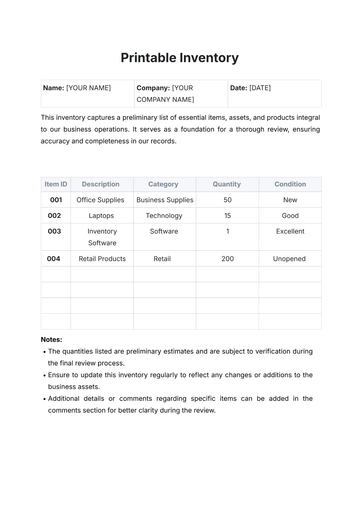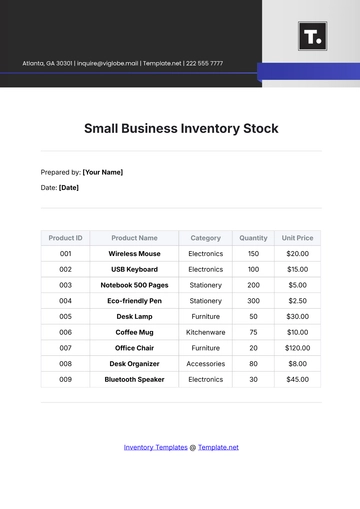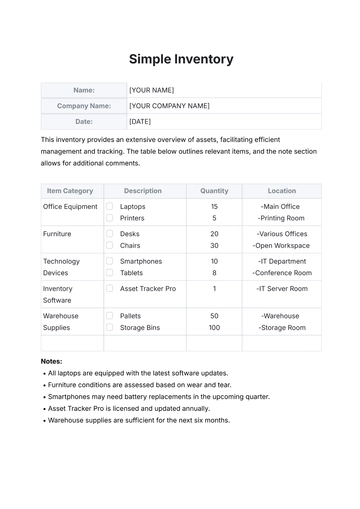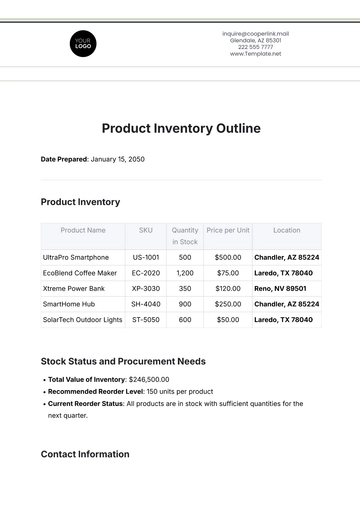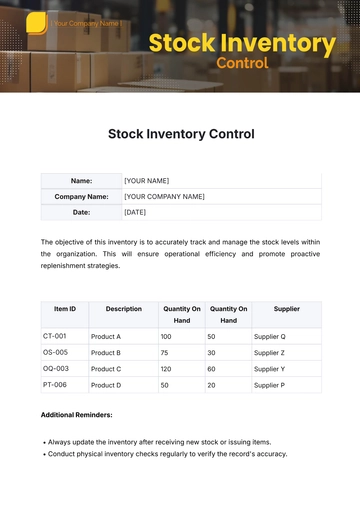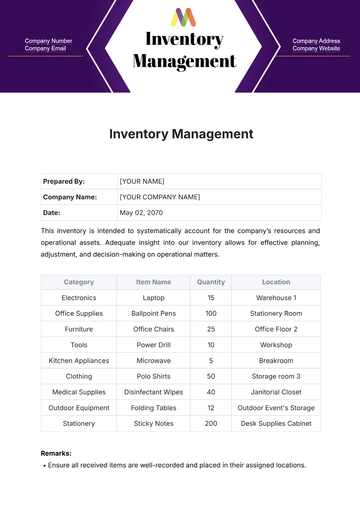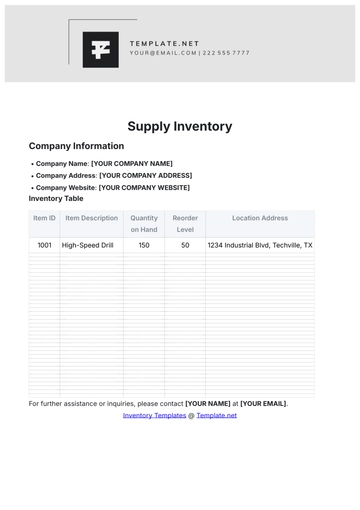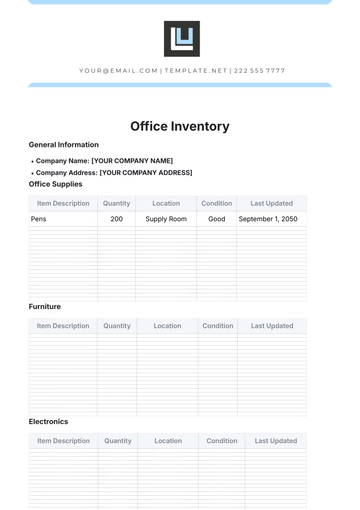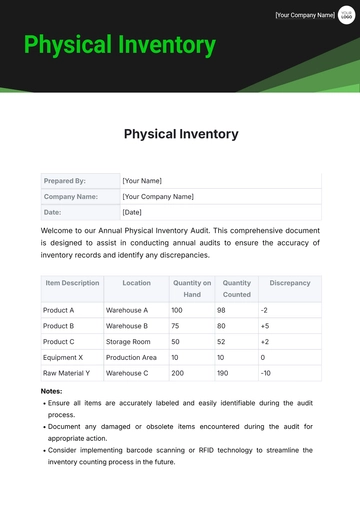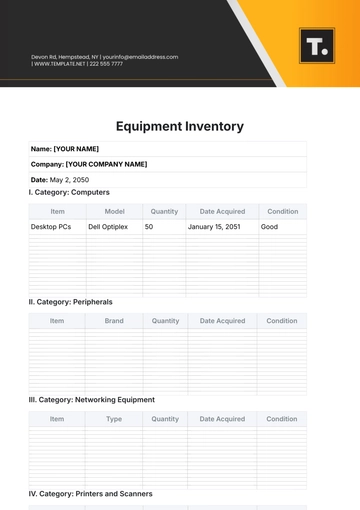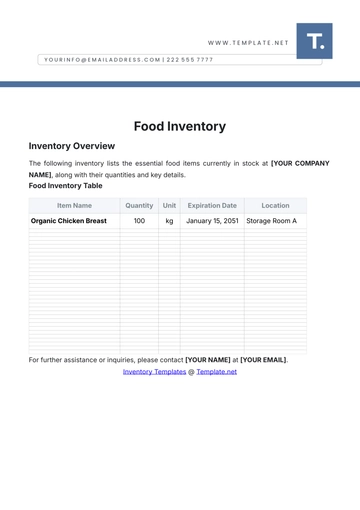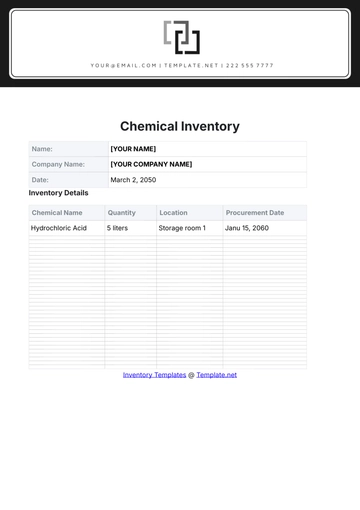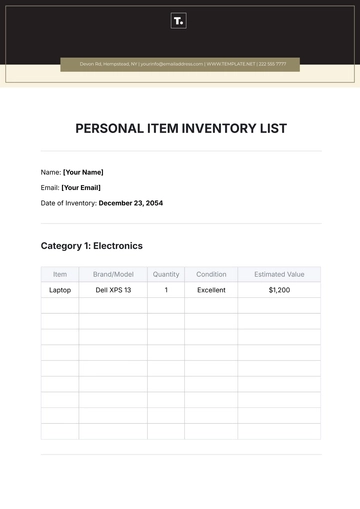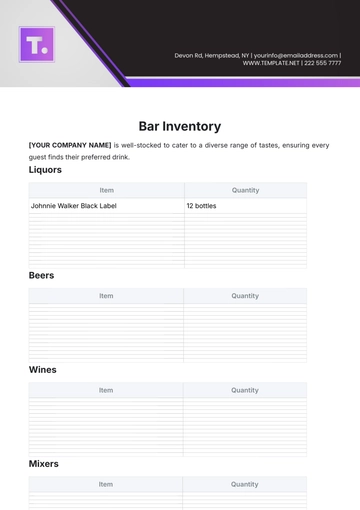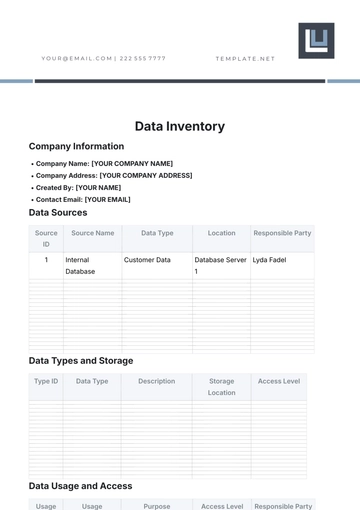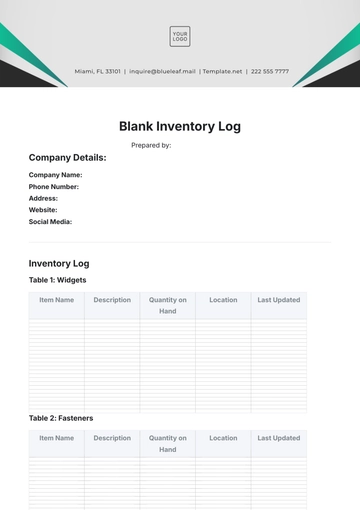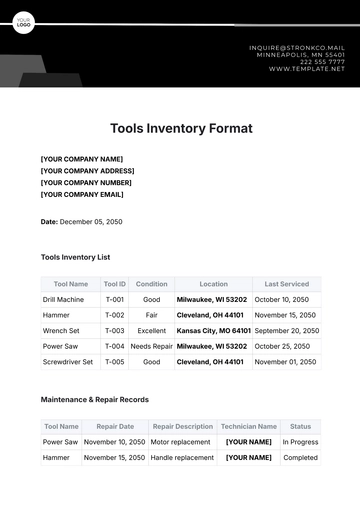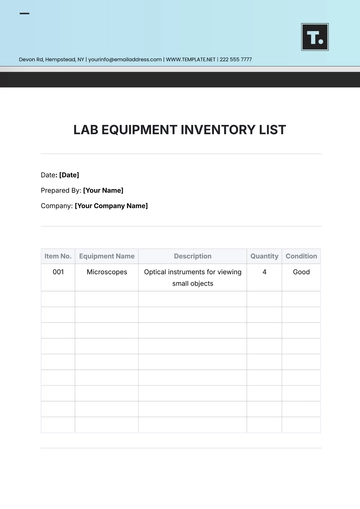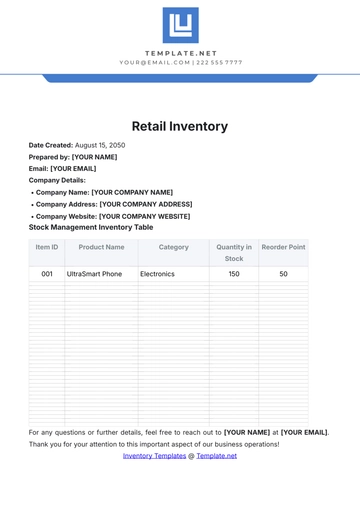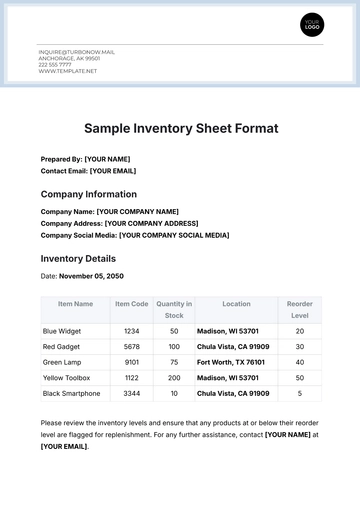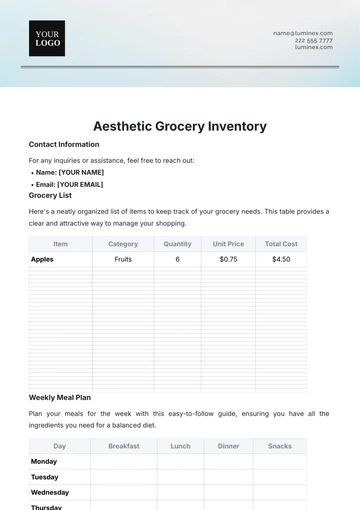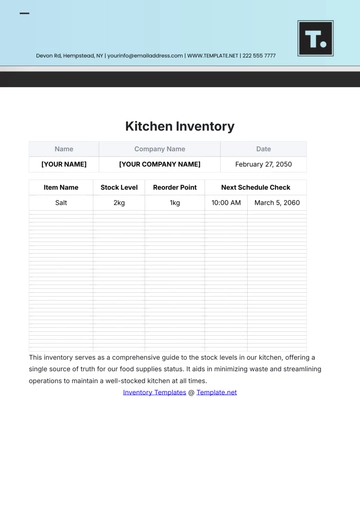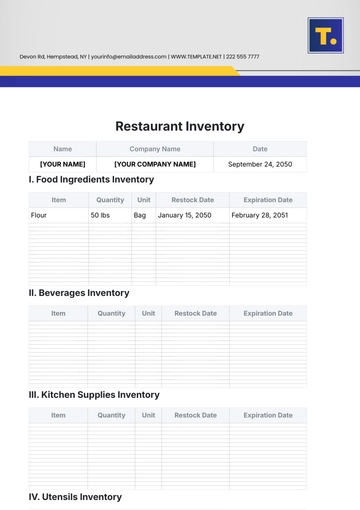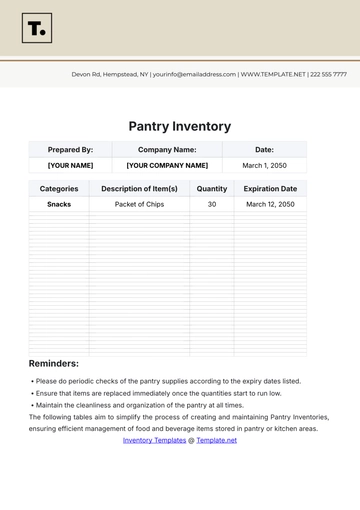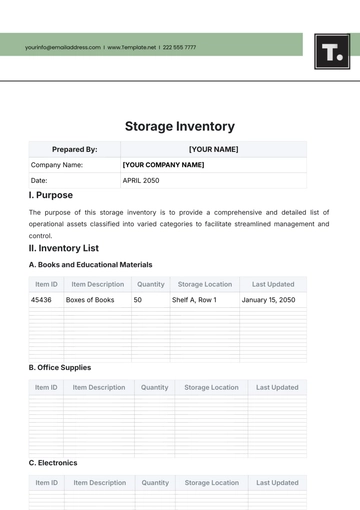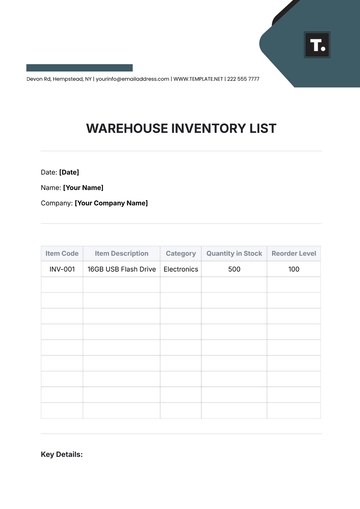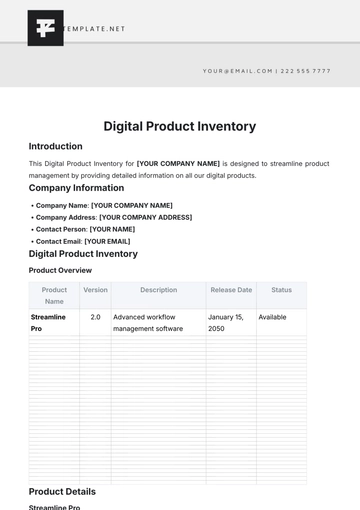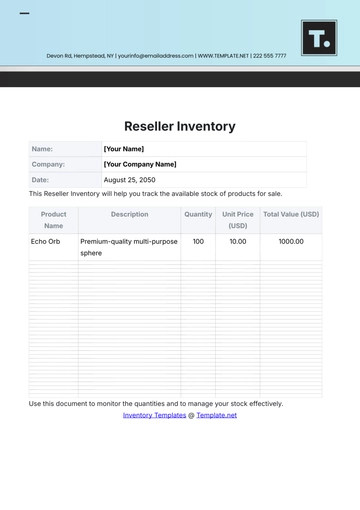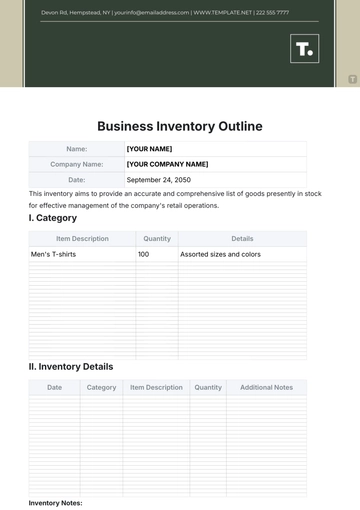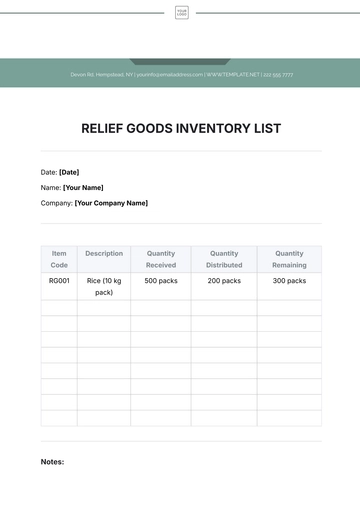Free Inventory Report
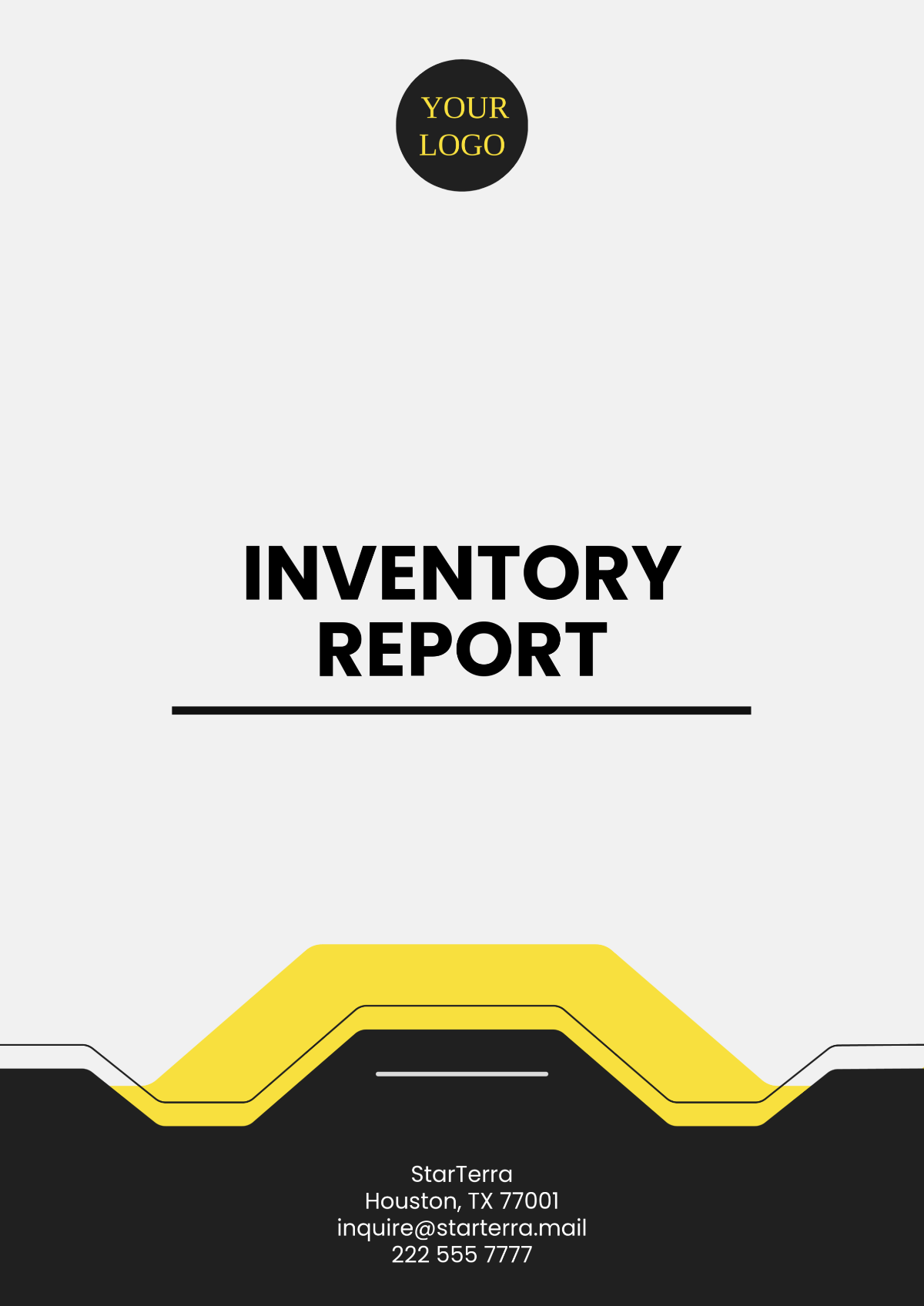
Company: [Your Company Name]
Prepared by: [Your Name]
Report Period: [Date]
I. Introduction
This inventory report presents a comprehensive analysis of the current inventory status for [Your Company Name] as of October 2050. The objective is to provide detailed insights into inventory levels, distribution, and overall warehouse management to support strategic planning and decision-making. The report is organized into sections covering various aspects of inventory management.
II. Current Inventory Levels
A. Overview
The current inventory levels are categorized based on product types and storage locations. This section provides an overview of the total inventory count along with relevant details.
Category | Total Units | Average Unit Cost |
|---|---|---|
Electronics | 15,000 | $250 |
Apparel | 25,000 | $45 |
Home & Kitchen | 18,500 | $100 |
Sports | 10,000 | $150 |
B. Warehouse Distribution
The inventory is distributed across several warehouses to ensure efficiency in order fulfillment and to minimize transportation costs.
Warehouse A: Electronics, Home & Kitchen
Warehouse B: Apparel, Sports
Warehouse C: All categories (overflow and bulk storage)
III. Inventory Analysis
A. Turnover Rates
Inventory turnover is a critical metric that provides insights into the efficiency of inventory management.
The table below outlines the turnover rates for each category:
Category | Turnover Rate |
|---|---|
Electronics | 8 times/year |
Apparel | 12 times/year |
Home & Kitchen | 6 times/year |
Sports | 10 times/year |
B. Inventory Valuation
The inventory valuation provides an estimate of the financial value of the current inventory. The valuation is based on the average cost method.
Category | Inventory Value |
|---|---|
Electronics | $3,750,000 |
Apparel | $1,125,000 |
Home & Kitchen | $1,850,000 |
Sports | $1,500,000 |
IV. Issues and Recommendations
A. Identified Issues
High holding costs for electronics due to slow-moving items.
Underutilization of Warehouse C leading to inefficiency.
Seasonal fluctuations cause stockouts the in Apparel category.
B. Recommendations
To address the identified issues, the following recommendations are proposed:
Implement a dynamic pricing strategy to move slow-selling electronics.
Redistribute some categories to better utilize Warehouse C.
Improve demand forecasting to better manage seasonal inventory levels, especially for Apparel.
V. Conclusion
This inventory report provides a snapshot of the current inventory status for [Your Company Name] and offers actionable strategies to improve inventory management. By implementing the recommended changes, [Your Company Name] can enhance efficiency, reduce costs, and ensure that it meets market demand effectively while maintaining optimal inventory levels.
- 100% Customizable, free editor
- Access 1 Million+ Templates, photo’s & graphics
- Download or share as a template
- Click and replace photos, graphics, text, backgrounds
- Resize, crop, AI write & more
- Access advanced editor
